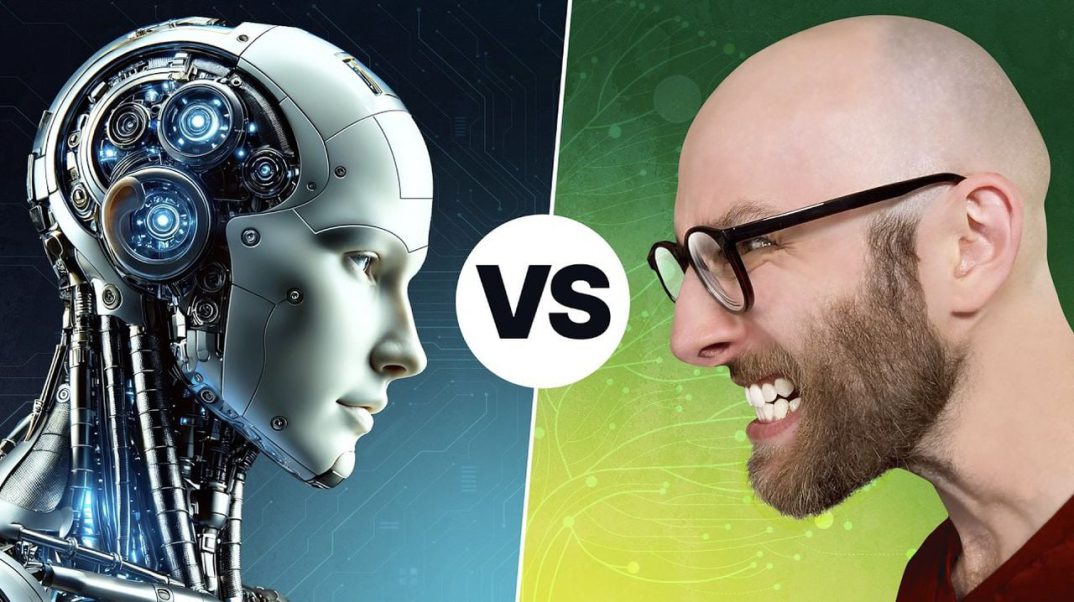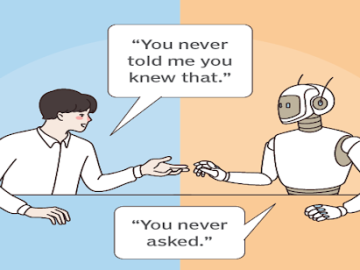A fascinating experiment has been conducted by Ahrefs, pitting a seasoned digital marketing professional with 14 years of experience against a novice equipped with AI tools. The goal was to examine the interplay between human expertise and AI capabilities in addressing modern marketing challenges. The participants were tasked with creating social media posts, Google ads, and blog articles to promote an Italian chef’s online cooking course. To ensure impartiality, judges evaluated the submissions anonymously, focusing on creativity, precision, and audience engagement.
Whether you’re a seasoned marketer, a curious entrepreneur, or just someone intrigued by the growing role of AI in our lives, this experiment offers valuable insights. It’s not just about who “wins” but about what this competition reveals about the strengths and limitations of both human expertise and artificial intelligence. Can AI truly replicate the creativity and emotional connection that come from years of experience? Or does it bring something entirely new to the table? Let’s explore how this battle of brains versus bots unfolded—and what it means for the future of marketing.
Competition Breakdown
TL;DR Key Takeaways :
- The competition between a 14-year digital marketing expert and an AI-equipped novice highlighted the complementary strengths of human creativity and AI precision in marketing tasks.
- AI excelled in structured, data-driven tasks like Google ad writing, showcasing its speed, scalability, and adherence to SEO best practices.
- Human expertise outperformed AI in tasks requiring emotional resonance and storytelling, such as social media posts and blog writing, emphasizing the importance of creativity and audience connection.
- The experiment revealed AI’s strengths in efficiency and technical accuracy but also its limitations in creativity, emotional depth, and understanding audience intent.
- The future of marketing lies in blending AI’s capabilities with human insight, as success depends on using both precision and authentic, emotionally engaging content.
The competition was structured around three distinct tasks:
- Designing a social media post to promote the cooking course.
- Writing a Google ad to drive traffic to the chef’s website.
- Developing a blog post to engage readers and improve SEO rankings.
Each task was assessed based on its ability to balance creativity, technical accuracy, and audience connection. The results offered valuable insights into how AI tools and human expertise can complement each other in the marketing landscape.
Task 1: Social Media Post Creation
The first challenge tested the participants’ ability to craft an engaging social media post. The AI-generated content stood out for its polished visuals and concise captions, demonstrating its ability to produce professional-looking posts efficiently. However, the judges noted that the AI’s output lacked emotional depth and felt somewhat generic, failing to establish a strong connection with the audience.
In contrast, the human expert used storytelling to highlight the chef’s passion and the unique value of the cooking course. This approach created a more personal and relatable narrative, resonating deeply with the target audience. The judges ultimately favored the human-created post for its authenticity and emotional engagement, emphasizing the importance of connecting with audiences on a personal level in social media marketing.
AI vs 14-Year Digital Marketing Expert
Here are additional guides from our expansive article library that you may find useful on AI marketing.
Task 2: Google Ad Writing
The second task focused on crafting effective Google ads. Here, the AI showcased its strengths, generating concise, SEO-optimized ad copy that adhered to industry best practices. It quickly produced multiple variations tailored to specific keywords and audience segments, demonstrating its efficiency and precision in data-driven tasks.
On the other hand, the human expert’s ads, while creative, lacked the brevity and focus required for high-performing paid campaigns. The judges preferred the AI-generated ads for their clarity and technical accuracy, highlighting how AI excels in structured tasks that demand adherence to specific guidelines and optimization techniques.
Task 3: Blog Post Development
The final challenge involved creating a blog post to promote the cooking course while enhancing SEO rankings. The AI delivered a well-structured, keyword-rich article that adhered to SEO best practices. However, its content was criticized for being shallow and lacking originality, which limited its ability to engage readers on a deeper level.
In contrast, the human expert’s blog post stood out for its depth, storytelling, and ability to captivate the audience. Drawing on years of experience, the human writer crafted an informative and entertaining piece that resonated with readers while addressing their needs and interests. The judges ultimately favored the human-written blog for its nuanced understanding of the audience and its engaging tone, underscoring the value of experience and creativity in content creation.
Strengths and Weaknesses of AI
The competition revealed distinct strengths and limitations of AI in marketing:
- Strengths: Speed, scalability, adherence to technical constraints, and SEO optimization.
- Weaknesses: Limited creativity, lack of emotional resonance, and a shallow understanding of audience intent.
AI tools excel in tasks that require precision, efficiency, and adherence to structured guidelines, such as ad writing and SEO-focused content. However, they struggle to replicate the creativity, emotional intelligence, and audience insight that human marketers bring to storytelling and engagement.
Key Takeaways on AI in Marketing
This experiment highlighted the evolving role of AI in the marketing industry. While AI can significantly enhance efficiency and scalability, it requires human oversight to ensure outputs align with brand values and audience expectations. The competition demonstrated that the most effective marketing strategies often combine the strengths of AI with the creativity and insight of human professionals.
Marketers who embrace AI as a complementary tool can gain a competitive edge by using its capabilities for repetitive and data-driven tasks. However, the limitations of AI underscore the enduring importance of human expertise, particularly in crafting authentic and emotionally resonant content that builds lasting connections with audiences.
Looking Ahead: The Future of AI in Marketing
As AI technology continues to advance, its role in marketing is expected to expand, reshaping workflows and creating new opportunities for innovation. Marketers will need to adapt by integrating AI into their processes while using their unique skills to address areas where AI falls short.
The competition between the human expert and the AI-equipped beginner serves as a powerful reminder that while AI can streamline tasks and improve efficiency, it cannot fully replicate the creativity, intuition, and audience understanding that come from years of experience. The future of marketing lies in collaboration, where the precision and scalability of AI are balanced with the authenticity and depth of human creativity.
Media Credit: Ahrefs
Filed Under: AI, Technology News, Top News
Latest Geeky Gadgets Deals
If you buy something through one of these links, Geeky Gadgets may earn an affiliate commission. Learn about our Disclosure Policy.
Originally Appeared Here




